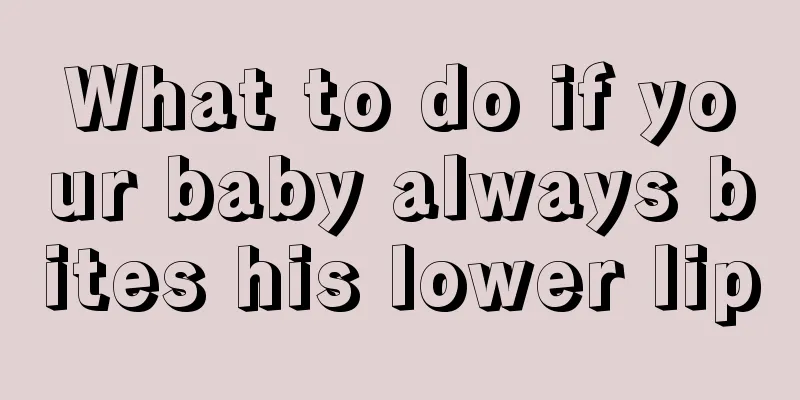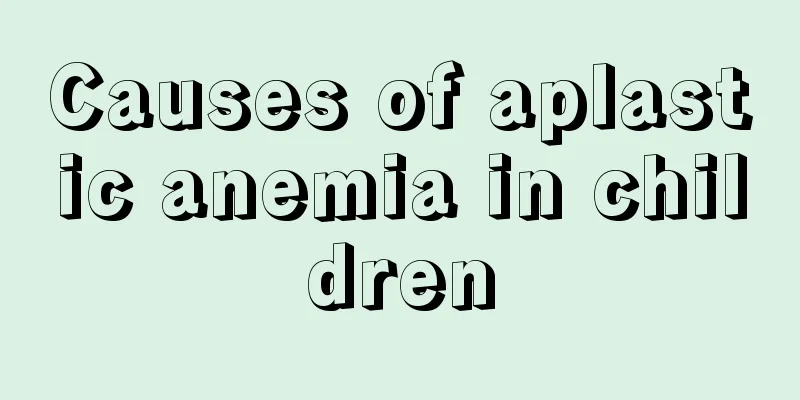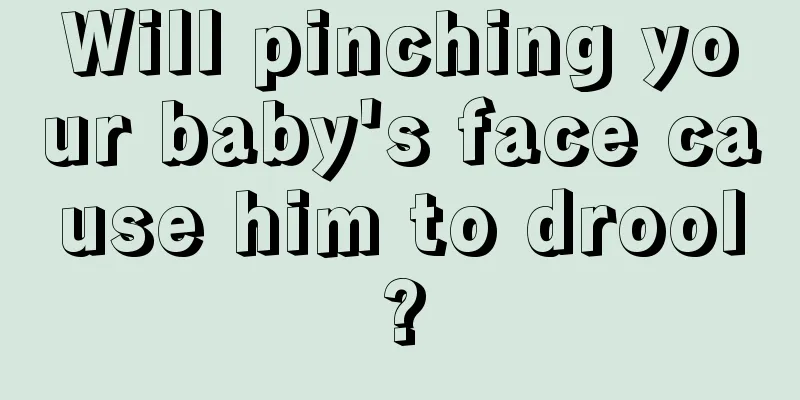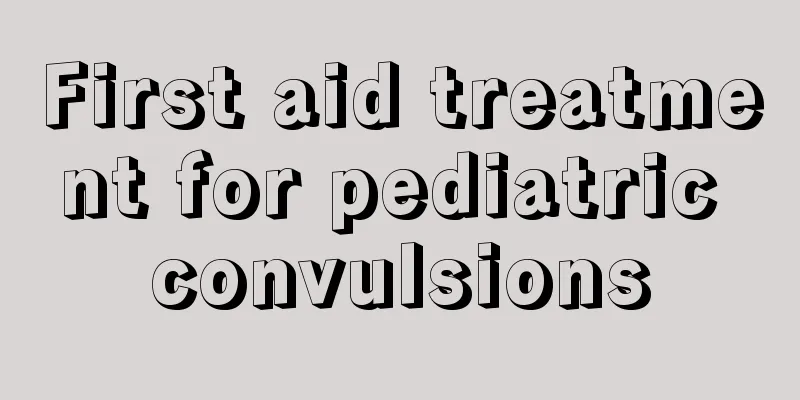The reason why babies hiccup before one month old

|
I believe that everyone must be very familiar with symptoms such as hiccups. Hiccups are a common symptom for us. The occurrence of hiccups can easily bring us many kinds of troubles, so we suggest that our readers and friends pay attention to symptoms such as hiccups. Babies will also have hiccups. Parents must be very worried when their babies have hiccups. Below we will introduce to you the reasons why babies who are less than one month old have hiccups. Most babies will hiccup from time to time, and some will even hiccup while in their mother's belly. Hiccups are caused by spasms in the diaphragm, the cup-like muscle that surrounds the stomach and lungs. As the stomach expands, it causes the diaphragm to spasm, thus causing the baby to hiccup. During feeding, babies may hiccup due to overfeeding or inhalation of air. The following are specific preventive measures: Hiccups due to overfeeding A baby's stomach is about the size of their fist, and a good way to tell if they're overfeeding is to measure the amount of milk you typically give them by holding their little fist against the bottle. You will be able to notice immediately if you are overfeeding. Try to have your baby eat small, frequent meals. To prevent your baby from eating too fast, you should change your baby's position every 20ml, or burp him, or let him relax and take a rest. Wait until the hiccups stop before continuing to feed your baby. If the hiccups don't stop after 5-10 minutes, giving your baby a few sips of water may stop the hiccups. This is especially important if your baby swallows large gulps. If your baby burps often, feed him before he's very hungry or when he's quiet. This will reduce the chance of burping during feedings. Hiccups due to inhaled air During feeding, make sure your baby's lips are at the widest part of the nipple, not the tip, so that there is a good seal between your baby's lips and the bottle. Also, tilt the bottle at a 45-degree angle to allow the bubbles to flow to the bottom of the bottle. Keep your baby upright for at least half an hour after feeding to allow air to escape from the stomach. Also, burp the baby during and after each feeding. If the above measures do not stop your baby's hiccups, there are two more possibilities to consider. That is, allergy to milk powder and gastroesophageal reflux. Symptoms of milk powder allergy include edema, abdominal pain, diarrhea and facial rash. Gastroesophageal reflux occurs when the tube connecting the stomach and esophagus does not work properly. If your baby regurgitates a large amount of milk after each feeding, or has abdominal pain after feeding and wakes up in the middle of the night due to pain, you should consider whether it is caused by gastroesophageal reflux. For this reason, holding your baby upright can alleviate the above symptoms. If you suspect reflux is a factor, try reducing the amount of milk you give and keeping your baby upright and quiet after each feeding. Because strenuous activity after feeding can aggravate reflux. If the condition worsens, consult your pediatrician. In the above article, we introduced a common symptom, that is, hiccups. We know that hiccups can easily bring us many kinds of troubles, so we must pay attention to this symptom. The above article introduces in detail the reasons why babies who are not even one month old hiccup. |
<<: What should I do if my three-year-old baby has astigmatism?
>>: Why is the baby's head circumference too large?
Recommend
Baby has fever and turns pale
It is quite common in life that the baby has a fe...
Causes of apnea in premature infants
Respiratory apnea is a common phenomenon in prema...
What to do if your child's genitals itch
When children are young, all hygiene issues are t...
When can babies eat rice?
For children, milk is their only food when they a...
Symptoms of pituitary hypoplasia in children
If a child's pituitary gland is underdevelope...
Children's vision loss
We all know that a baby's declining eyesight ...
What to do if the child doesn't eat?
Children's poor appetite is a problem that pa...
What causes children to have a fever and convulsions?
Fever is very common among children. Some have hi...
Is clear nasal discharge a symptom of a cold in children?
Children are the treasures in the hands of their ...
What should babies over 2 months old pay attention to?
After the baby is born, he will grow up day by da...
What to do if a child dislocates his arm?
Many families are still worried when they see the...
Can amblyopia be cured?
The most notable feature of amblyopia is the irre...
How to prevent swollen lymph nodes behind the ears in children
Swollen lymph nodes behind the ears in children m...
The child's labia majora is ruptured
In our lives, when many mothers take care of thei...
What to do if your eight-month-old baby can't crawl
The mother is very worried when the child cannot ...









